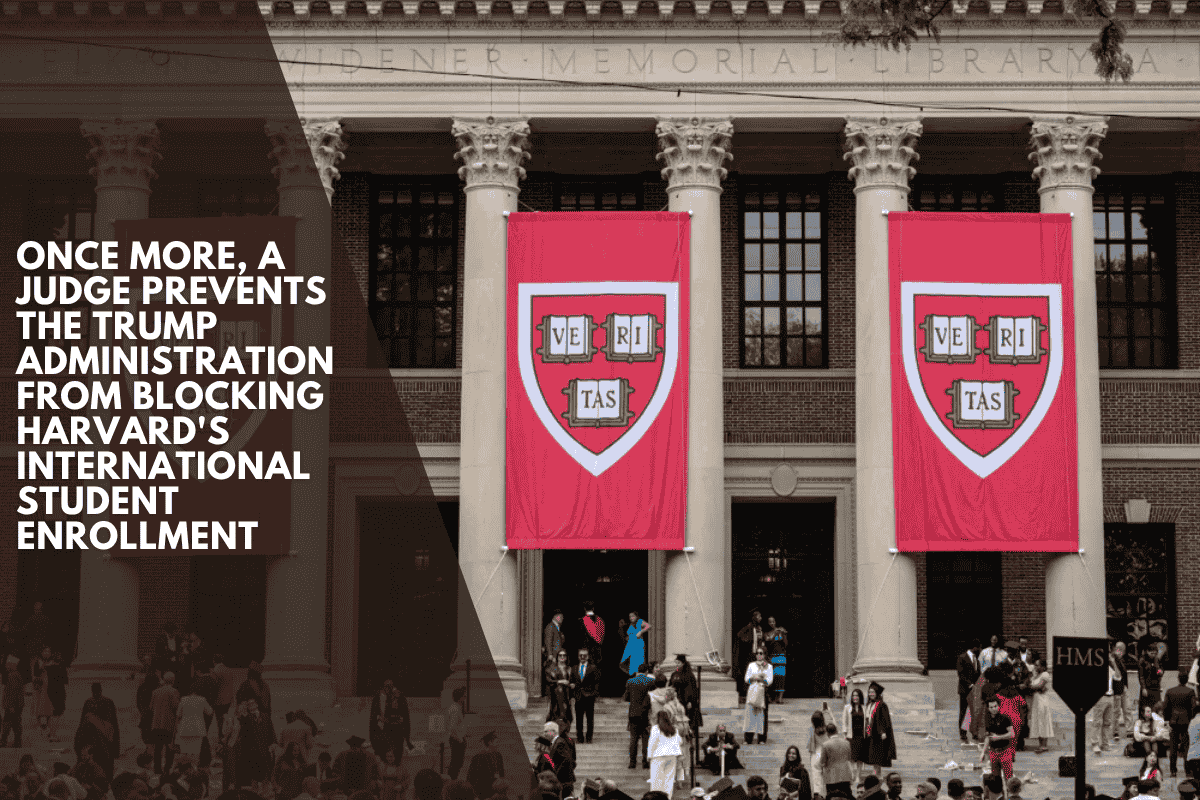A federal judge in Massachusetts on Friday blocked the Trump administration’s attempt to revoke Harvard University’s ability to enroll international students while also providing those students with additional legal protections.
U.S. District Judge Allison D. Burroughs issued the preliminary injunction after previously issuing a temporary restraining order against the federal government this month.
The injunction prohibits the administration from revoking Harvard’s Student and Exchange Visitor Program certification, which was issued in response to a revocation notice sent to Harvard administrators by the Department of Homeland Security on May 22.
In her decision, Burroughs directed the government to “immediately” prepare guidance to alert Trump administration officials to disregard the notice and to restore “every visa holder and applicant to the position that individual would have been in absent such Revocation Notice.”
It also states that student visa holders should not be denied entry into the country as a result of the revocation.
The administration is obliged to “file a status report within 72 hours of entry of this Order describing the steps taken to ensure compliance with this Order and certifying compliance with its requirements,” according to Burroughs.
Preliminary injunctions can be appealed, and the Justice Department is likely to do so.
The Justice Department and the Department of Homeland Security did not immediately respond to requests for comment.
According to a May letter from Homeland Security Secretary Kristi Noem, the administration was revoking Harvard’s ability to enroll international students in part because the university had been “perpetuating an unsafe campus environment that is hostile to Jewish students, promotes pro-Hamas sympathies, and employs racist ‘diversity, equity, and inclusion’ policies.”
Harvard denied the allegations, describing Noem’s actions as “unlawful and unwarranted.”
Trump announced in a presidential proclamation this month that he would deny visas to foreign students seeking to attend Harvard. The school responded by amending its May lawsuit and asking the court to halt enforcement of the proclamation, which Burroughs quickly granted.
At a hearing on the injunction, the university’s attorney, Ian Heath Gershenger, accused the administration of “using international students as pawns” and singled out Harvard.
Justice Department lawyers emphasized the administration’s national security concerns, claiming they did not trust Harvard to screen thousands of international students.
An attorney for the Trump administration previously stated that it does not have the same concerns about other schools, but that this may change.
The revocation was one of the administration’s most recent actions against Harvard after the school refused to comply with a set of demands issued by the Task Force to Combat Anti-Semitism.
These demands included broad reforms to university hiring and admission policies, as well as a government-approved audit of faculty members’ ideologies.
In April, the task force announced that it would cut more than $2 billion in grants after the school refused its demands, which included limiting the acceptance of international students who are “hostile to American values and institutions.”
Harvard promptly sued the administration, accusing it of seeking “unprecedented and improper” control over the school.
As tensions rose, the administration weeks later asked all federal agencies to terminate their contracts with Harvard, totaling $100 million.
The administration’s targeting of the prestigious university has sparked outrage from critics and free speech advocates, as well as support from other institutions.
This month, two dozen universities filed an amicus brief in support of the school, arguing that the funding freeze would have an impact on more than just Harvard due to the interconnectedness of scientific research, ultimately stifling American innovation and economic growth.
In addition, a group of 12,041 Harvard alumni, including notable figures such as Conan O’Brien and author Margaret E. Atwood, filed a separate brief describing the withholding of funds as a “reckless and unlawful” attempt to exert control over the school and other higher education institutions.
Meanwhile, Trump hinted on social media Friday that he might be able to work out his differences with the school.
“Many people have inquired about what is going on at Harvard University and the large-scale irregularities that we have been addressing in search of a solution. We’ve been working closely with Harvard, and it’s very possible that a deal will be announced within the next week or so,” he told Truth Social.
“They have acted extremely appropriately during these negotiations, and appear to be committed to doing what is right,” stated the president. “If a Settlement is made on the basis that is currently being discussed, it will be ‘mindbogglingly’ HISTORIC, and very good for our Country.”












